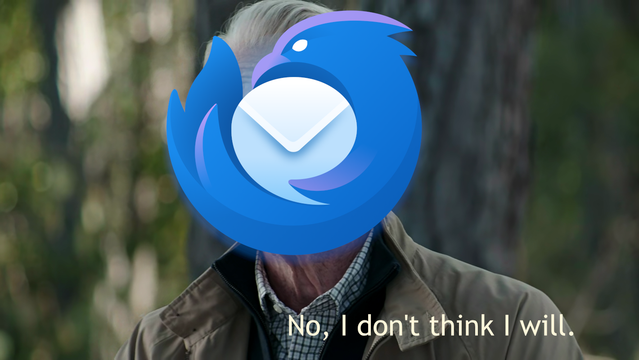Let's hop on a call about it. Just a quick Teams meeting. Let's huddle it on Slack. We can chat about it on Hive. Hit me on Troop. Got time for a Webex? Jump on a Zoom. Let's task it on Chanty. Get on Flock with me. Send a message on Rocket. We'll workshop it on Ryver. Link me on Pumble. Log into my Discord server. Shoot me a message on Matrix. We'll do Google Chat. ProofHub me. Upbase me. Wrike me. Asana me. Notion me. Let's talk on Viva Engage.
@khm #email #ThunderBird #Teams #Slack #Hive #Troop #WebEx #Zoom #Chanty #Flock #Rocket #Ryver #Pumble #Discord #Matrix #GoogleChat #ProofHub #Upbase #Wrike #Asana #Notion #VivaEngage #TheresNoWayTheseAreAllActuallyMessagingApplicationsIsThereQuestionMark
What’s more surprising is that Jira didn’t make the cut
@khm This is the problem having an open standard for online chat is meant to solve. We have at least 2; XMPP and Matrix, and most chat services don't interoperate over either.
Why? IMHO it's because you can justify much higher stock valuations if you can credibly promise to win the zero-sum battle to be the One Ring. And startup founders and early employees are paid for some or all of their early stage work in stock options.
@strypey @khm
As I see Cory Doctorow explianed it better. Basically, there is no law on communication software to be interoperable. If there was such law for software with like 100K+ monthly active people "aboard" to be interoperable with any other such software, with penalties for not doing so, it would become more lucrative for these chat/collaboration software to be interoperable via 1-3 protocols used by everyone for "federated" communication.
1/2
As I see Cory Doctorow explianed it better. Basically, there is no law on communication software to be interoperable. If there was such law for software with like 100K+ monthly active people "aboard" to be interoperable with any other such software, with penalties for not doing so, it would become more lucrative for these chat/collaboration software to be interoperable via 1-3 protocols used by everyone for "federated" communication.
1/2

